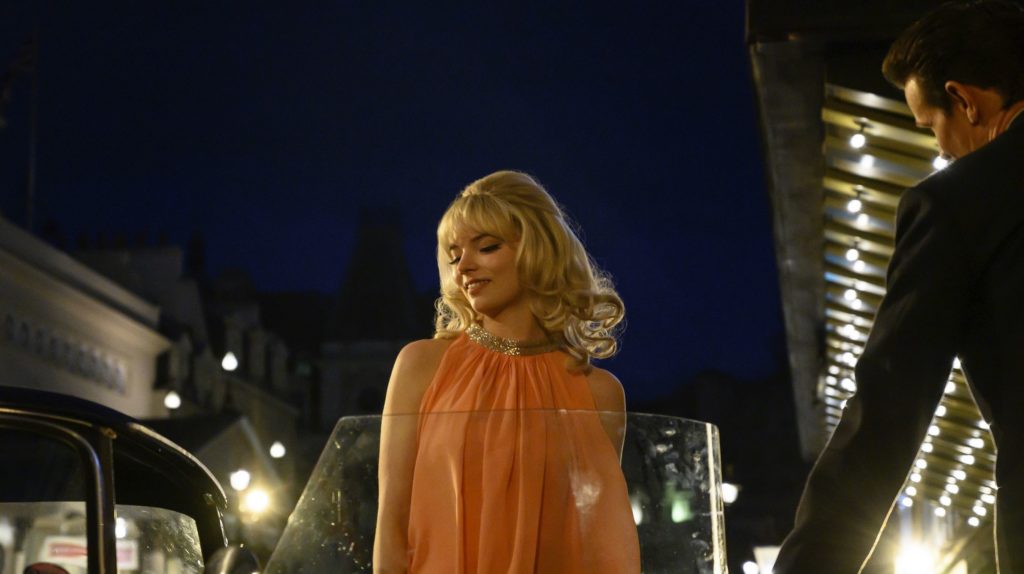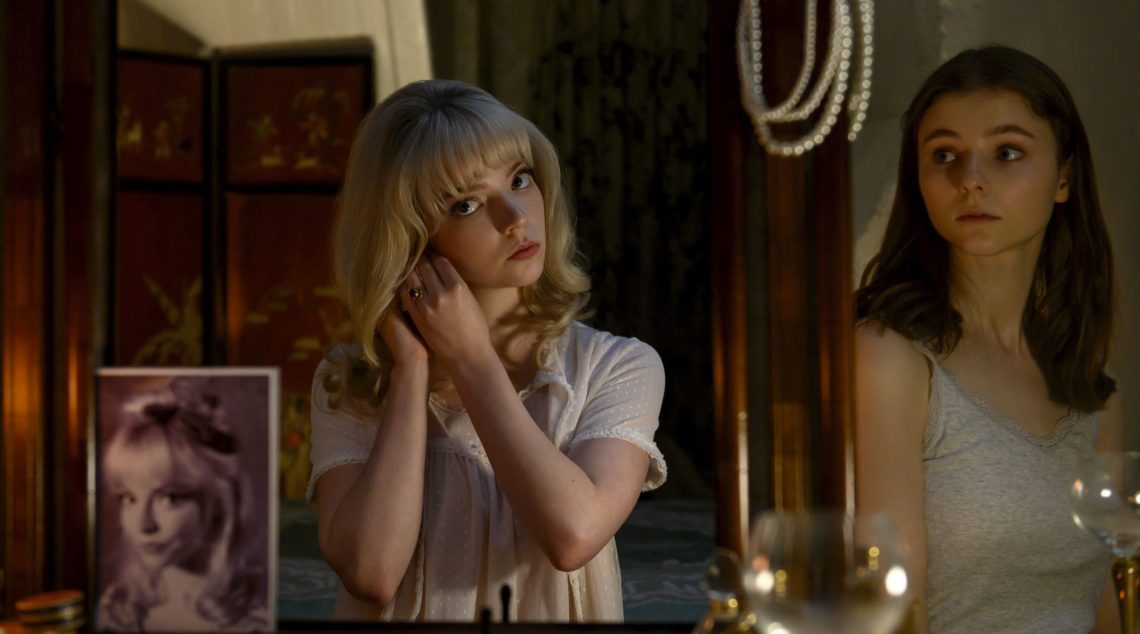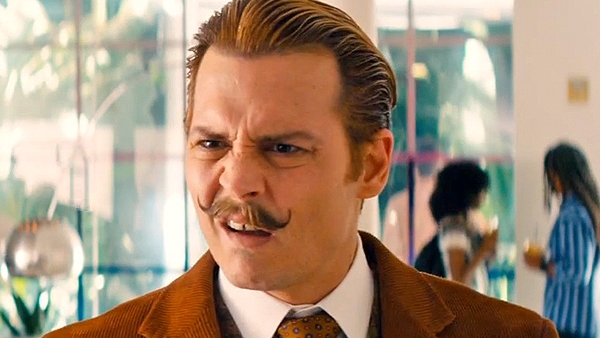Edgar Wright is one of our favorite directors. His style, skill, and sense of humor are just a few reasons why we’re so endeared to his work. While he’s made a name for himself as a powerful and highly competent genre filmmaker, he’s still growing as an artist. His latest – a throwback ghost story – finds him committing to a kind of period piece as he tries his hand at a murder mystery. Yes, we know, Hot Fuzz is a murder mystery, but it was filtered through the lens of a buddy cop comedy. Last Night In Soho is entirely different. How, you ask? Let me expand.
As mentioned above, this is a ghost story that hearkens back to the British TV movies of Wright’s youth. At some point, every director goes from lifting their favorite scenes and dialog to filming a legitimate feature-length homage. This film is exactly that. Is there humor? No. Is there witty dialog? No. Are there blindingly swift edits, the kind that heighten the pace, comedy, or mood that made Wright a standout in the first place? No. Then what’s special about this? Well, it’s the commitment to a serious style of film, and foregoing all his previous calling cards because that helps with the retro effort. Wright is a modern filmmaker and his style is memorable because it fits in a modern setting. It doesn’t work in a late ’60s era film.
To some, myself included, going into Last Night In Soho expecting Baby Driver or Scott Pilgrim is going to be a let down. This – musical numbers not withstanding – is something entirely different. What makes it special however are the little things that Wright does in his films. Close-ups on inanimate objects, clever camera pans and wipes, his love affair with pubs, and, yes, some simply excellent placement of music. And Steven Price, a frequent collaborator, brings his signature electronic work and hits them with some moody orchestra to heighten many scenes.

From frame one, Last Night In Soho is about misdirection and works because it’s also a fish-out-of-water story. Those two elements play off each other nicely and keep the film from being predictable. We don’t advocate watching trailers because of how much they give away, but you have to credit the team for using that piece of advertising to keep the up the mystery of this story. There is fun to be had, but it soon warps then turns dangerous, and so begins the mystery which thickens by the minute. However it’s not the story that shines, it’s the deeper themes and social issues which speak to louder than the characters.
Without doubt, the film succeeds because of the leads. Anya Taylor-Joy and Thomasin McKenzie both excel in their roles but it’s less about the dialog and more about how they embrace the themes. McKenzie deals with mental illness in the her family, and it causes reason and doubt as to how she’s able to travel back to the events that Taylor-Joy experienced decades prior. She’s also got trust and abandonment issues which complicate relationships, be it the similarly out of place would-be love interest, or the stereotypical antagonistic dorm mate (who is a catalyst for several story beats).
In the ’60s, Taylor-Joy sees her hopes and dreams teased as the door to the entertainment world are opened wide. But soon, that experience is tarnished and the once bright-eyed future star’s optics become like a doll’s. It does echo McKenzie’s experience in her first term at fashion school, and those parallels are a nice touch. Maybe, even further, why the two might be connected? But still, that’s further misdirection. That helps keep you guessing as the mystery grows and morphs into straight-up horror at times.
G-S-T RULING:
All that said, the film suffers because it’s tied too close to the style Wright was emulating. It becomes flat at times. It’s a departure from the standout genre voice that loses a few steps by being an homage, and becomes a by-the-numbers Hardy Boys (or the UK equivalent) style story. The visuals and cinematography do shine; yet as Wright’s trademarks, they are on display but not in force. Last Night In Soho is good, not great, and putting praise aside, it might be the least revisited of Wright’s works.




